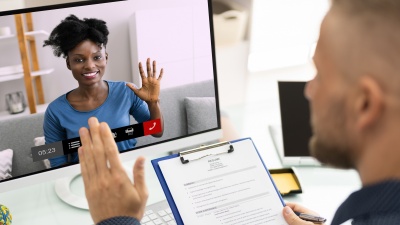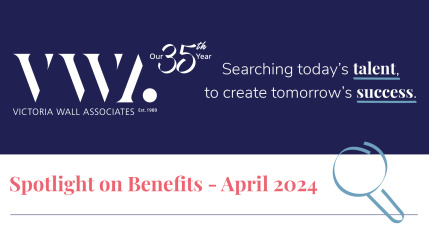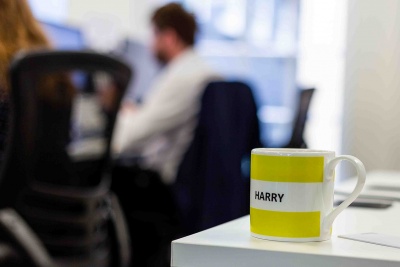How to Succeed in a Virtual Interview
By Sophia Voce & Hannah King

Like them or loathe them, virtual interviews are here to stay, with an estimated 85-90% of all first round interviews taking place this way. There are many advantages of course, most notably the flexibility and convenience of them, allowing for interviews to span time zones and work around busy schedules. They also help keep the interview process moving along which is great news for all involved.
Not long ago, any form of virtual meeting felt foreign and just a bit weird! But in a time of greater flexibility and hybrid working, we have become far more accepting of this 2D world. Despite this, an interview conducted virtually can feel like a very daunting prospect! You may find yourself anxious about the technology, fretting over what might fail or fear that you will struggle to engage and connect without meeting the interviewer in person.
In this article, we have put together our guide to help you shine through the process and avoid any pitfalls along the way.
The VWA guide to virtual interview success
It’s all in the preparation!
Whatever you do, don’t leave setting up until the last minute. Making sure your tech, your location, your choice of outfit etc. are all set is just as key as preparing your mind and competencies to share.
Things to consider BEFORE the interview:
Test your background
- You don’t have to sit with a green screen or even a white wall behind you, but do consider what the interviewer will see. If you sit with a bright window behind you, you will look like a talking silhouette!
- Test your sound settings and microphone and consider using a headset if necessary.
Laptop and camera positioning
- Ideally avoid using a tablet or phone but if you have no alternative, make sure you position it securely so the camera isn’t wonky or worse, jiggling about.
- If you use two screens, whatever you do, don’t give the interviewer a profile view of you. You want to replicate direct eye contact as closely as possible.
- One tip our Research Manager Hannah has shared is to minimise the interview screen and position it as close to the camera on your laptop as possible. This naturally pulls your eyes close to the camera so you can still look at them whilst creating the sense of direct eye contact.
Plan your outfit carefully
- Shoes (even bottom half!) are less of a concern but make sure that the visible part of your outfit is presentable and professional.
Minimise disruptions
- Think in advance about potential disruptions that could occur such as little people popping their heads in, dogs, cats, the postman even
- Ideally set yourself up somewhere that you are least likely to be interrupted.
- That said, we are all human and these things do happen. Should a disruption occur, don’t panic, just remain calm and professional and apologise. Most interviewers should be pretty understanding as long as you handle it well.
When should I ‘arrive’?
- Being really late for an interview is frankly a disaster, but arriving too early is also a big no-no. In person, arriving at the premises 10 minutes early is generally considered acceptable but with a virtual call, there really is no need to dial in any earlier than 3 minutes before scheduled time.
- Not all online calls are set up with a lobby, so do be prepared to potentially find the other person (or people) already on the other side when you enter.
Never read directly from your notes during the interview
- You certainly wouldn’t bring notes to refer to and read from during a face to face interview and it is essential to do the same in the virtual equivalent. We cannot describe how obvious it is when someone is reading something off screen or in front of them!
- As part of the process, VWA Consultants will arm you with relevant information about the company and the role and help you build up a bank of competencies and experiences to draw upon. But we will ALWAYS advise you not to have these notes available to read during the interview.
- If you read out notes, your response will sound rehearsed (no matter how good an actor you are!) and the client won’t get a sense of who you really are. You may also find yourself going slightly off topic when answering a question by reading out a specific answer you prepared.
- Before the interview, thoroughly read your notes, internalise your answers and ideally practice some interview questions with someone else beforehand
- As tempting as it is to have notes there to give you confidence, in reality they will distract you and damage your credibility.
Food and drink etiquette
- Again the golden rule here is to try and replicate an in-person interview. Ask yourself, would I be tucking into my lunch, having a cuppa or even chewing gum in person? NO! A glass of water is fine, sensible even, but save the 3 course meal for after the call has ended.
What if technology isn’t playing ball?
- As advanced and wonderful computers and the internet are, technical issues can occur. Firstly, DO NOT PANIC! If you are struggling to connect in the first instance, find a way to communicate your issue and apologise to the interviewer. Remember that there is usually a chat function which enables you to message them.
- You might experience technical issues midway through which could cause you to accidentally interrupt each other. The best thing is to be human about it, acknowledge the issue and apologise. Stay calm and just try to resolve any issues.
The end of the interview is approaching. How do sign off without a firm handshake?
- In person, it’s much more straightforward to stand up and offer a firm handshake, thanking the interviewer for their time. Of course via screens, this isn’t possible.
- In the virtual setting, take the opportunity to give a big smile and thank them for their time. No need to add anything like, ‘I hope to hear from you soon’. You can mirror the interviewer if they give a little wave by giving a quick wave back, but follow their lead rather than initiate this.
- Remember the formal nature of an interview and maintain professional conduct as you close the call.
Let’s recap on the key things to remember:
In addition to your usual interview preparation, plan and test your technology, check how you are positioned, look and sound on screen in advance and dress professionally
- Arrive into the call on time and no more than 3 minutes early
- Keep the notes shut away in a draw and be confident in your own knowledge and ability to recall information during the interview
- Save lunch/coffee/chewing gum until after you have finished the interview
- Do not panic if technology lets you down! Stay calm and communicate with the interviewer to resolve the issue
- Close the call in a professional manner. Smile, thank them and leave it at that!
A final word of advice from the VWA team
Remember that all of the above also applies in an initial interview with a recruitment consultant. It’s easy to feel like this is a less formal meeting to prepare you to meet the client. Whilst our consultants will do everything we can to put you at ease and prepare you for a potential subsequent interview, it is crucial to see this conversation as a first round interview.
If you don’t make a good impression on the recruiter, they will be hesitant to put you forward to their client. Aim to impress from the start!
Related news
Keeping you up to date with our latest news and views.

By Sophia Voce
Best Practices for Conducting an In-Person Job Interview- A Guide for…

By Nick Coleridge-Watts and Manjinder Kang
Spotlight on Benefits - April 2024

By Sophia Voce
Stress Awareness Month - The Power of Small Steps for Workplace…

Get in touch
Get in touch to find out more about our vacancies, roles or how we can help bring the best talent to your business.